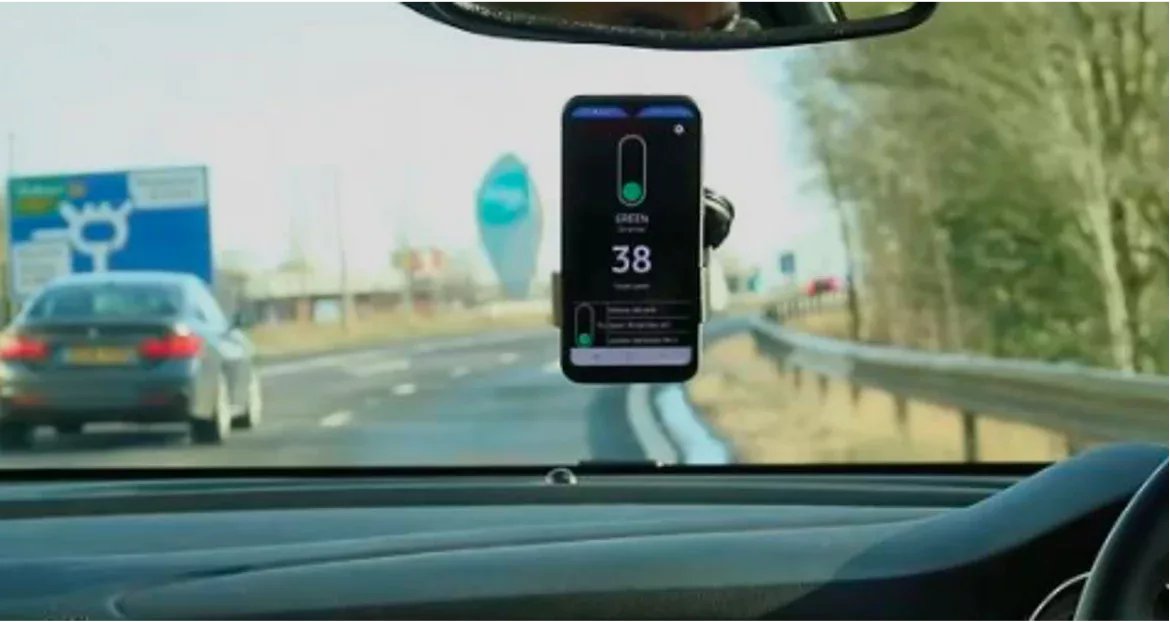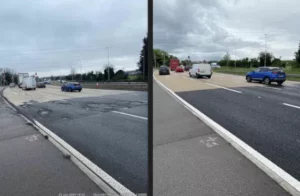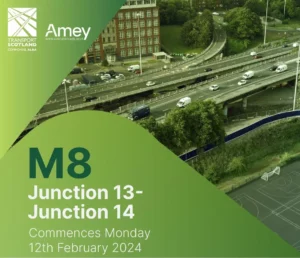A system which recommends the speed drivers should approach a set of traffic signals to ensure they arrive when lights are green has been shown to significantly reduce vehicle emissions.
The Transport Technology Forum’s SPATULA (Signal Phase and timing for uses; local authorities and automotive) group has analysis which shows GLOSA – Green Light Optimised Speed Advisory – can lead to a cut of more than a quarter in CO2 emissions, and nearly a fifth in NOx from heavy goods vehicles as they leave a motorway.
GLOSA is connected vehicle technology which collects traffic signals timings. It then calculates the right speed to be travelling for drivers to avoid coming to a stop at a red light and presents visually and audibly through an app. If a driver does have to stop at a red light, it gives a countdown to green.
Highways England and Amey Consulting ran a trial with Transport for Greater Manchester at two slip roads off motorways in Oldham and Bury. One was an uphill slip road off the A627(M), the other downhill off the M66.
By not idling, or having to restart after stopping, the travel through a junction becomes much more efficient. Analysis of results show CO2 emissions were reduced by up to 27% during the trial with NOx emissions down by up to 17%. The most impressive results were for larger vehicles.
It is estimated that freight vehicles save on average 12.5p in fuel, at current diesel prices, in not stopping on a slip road, suggesting significant financial, as well as environmental, benefits will add up. The environmental benefits will be greater than this, when the lack of tyre and brake dust due to braking is taken into account.
Amey provided the back-office and communications solution, working with Eastpoint on the GLOSA app and Ricardo for emissions testing.
(Picture – Amey/Eastpoint)





















